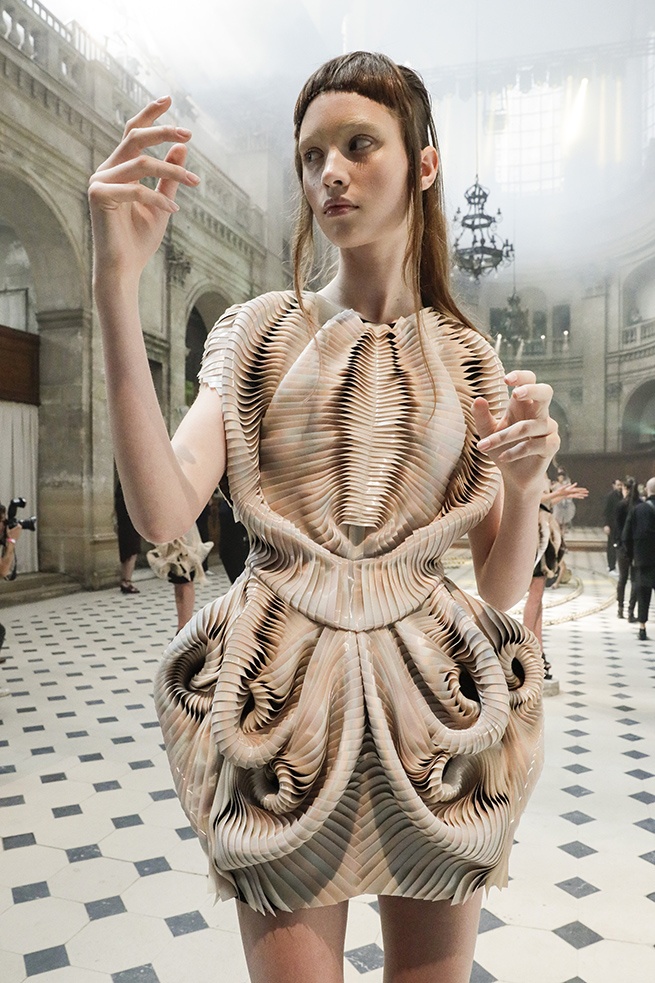Anneke Smelik: Fractal Folds
14 Mar 2018
A Conversation at the Crossroads
Through the case study of Dutch designer Iris van Herpen, this talk by Anneke Smelik looks at the fractal folds in 3D-printed designs. Iris van Herpen's designs maintain their love of complexity by foregrounding the constantly vibrating dynamic of the fold: her dresses ripple, loop, wave, twist, curl and undulate. The fractal folds have been made possible by the technology of 3D printing and by the plasticity of new materials like super-polymers, microfibers, silicone rubbers and nanomaterials. The fluid, flowing, flexible folds of 3D-printed fashion designs reveal a constantly closing in or opening up of the body to the world in a process of continuous becoming.
The process of becoming points to the role of non-human factors, ranging from raw materials to smart materials and from the textility of the garment to the tactility of the human body. Working from a dynamic notion of life in which human bodies, fibres, fabrics, garments and technologies are inextricably entangled, this lecture discusses the notion of transversal agency.
Agency is here understood as both human and non-human, decentring the human subject while embracing the intelligent matter of the human body as well as the materiality of fabrics, clothes and technology. Iris van Herpen's designs can be understood as hybrid assemblages of high-tech fibres, materials, and fabrics that enable engaged and meaningful interconnections with the human body.
Anneke Smelik is Katrien van Munster professor of Visual Culture at the Radboud University Nijmegen. She has published widely on issues of identity, body, memory and technology in fashion, cinema and popular culture. Recently (co-)edited books include Delft Blue to Denim Blue: Contemporary Dutch Fashion (2017), Materializing Memory in Art and Popular Culture (2017) and Thinking Through Fashion: A Guide to Key Theorists (2016).
This event is part of a series titled We Want Everything, programmed by Dr Stephen Wilson in collaboration with the ICA. The series is staged in collaboration with the ICA and the Chelsea, Camberwell and Wimbledon College of Arts postgraduate community. We Want Everything asks us to recognize the meaning of art and human life regardless of economic flows.
Given the neoliberal conditions we find our future-selves contending with, this public series of events explores human prerequisites such as citizenship, agency and the permission to experience any emotions. In an unstable field of bio-political inequalities, unconscious bias, data technologies, happiness industries and isolation, how do art and design practices maintain their love of complexity and deviation under the auspices of increased atomization?
In collaboration with UAL, Camberwell, Chelsea and Wimbledon




